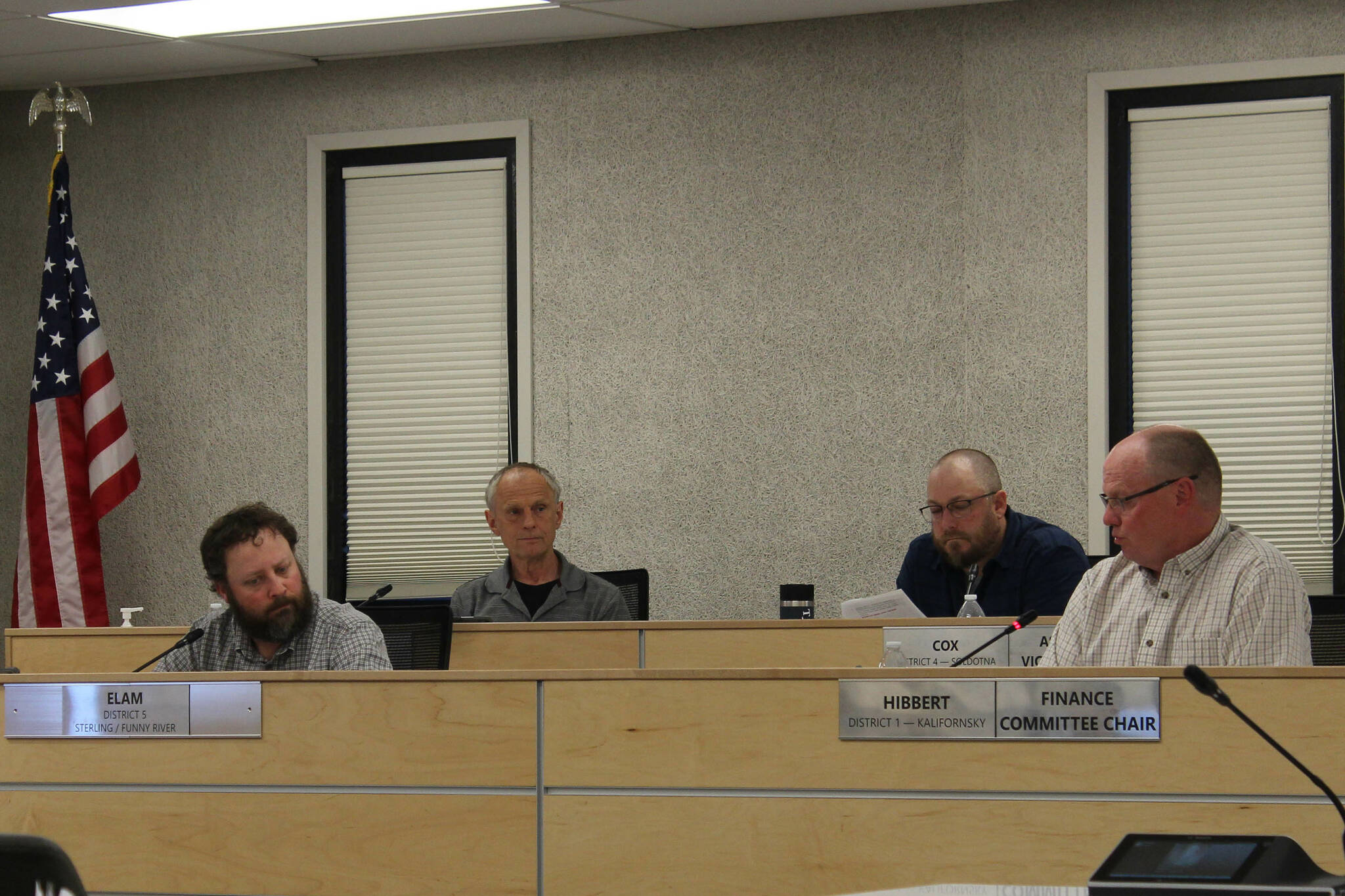The Kenai Peninsula Borough Assembly is calling on the Alaska Legislature to increase and inflation-proof the amount of money the state spends on K-12 education per student, also called the base student allocation.
Assembly members unanimously backed — and all sponsored — a resolution during their regular meeting on Tuesday requesting that the State of Alaska “make a timely increase to the base student allocation” for the state’s public schools. The assembly passed a similar resolution last year.
Tuesday’s vote came as state lawmakers prepare to return to Juneau for the upcoming legislative session, where funding for K-12 education is expected to be a top issue. School districts across Alaska lobbied lawmakers heavily last session for a meaningful increase to the base student allocation, which — other than a $30 increase approved with the Alaska Reads Act — hasn’t changed since Fiscal Year 2017.
The Kenai Peninsula Borough School District has already announced that it is facing a $13 million budget deficit for the upcoming fiscal year and is already reviewing where budget cuts may be made if no new state funding is secured. The district last budget cycle faced community pushback over proposed cuts to programs like school pools and theaters, which the district was ultimately able to add back with one-time state money.
Assembly Vice President Tyson Cox and assembly member Brent Hibbert, who brought the resolution forward, wrote in a Jan. 2 memo that, without “stable, inflation-proof education funding” the education system in Alaska will continue to “erode.”
“A stagnant base student allocation (BSA) has significantly decreased the buying power of State allocated educational funding over the last 20 plus years,” the memo says. “Even if this Assembly decides to fully fund education to the maximum allowable amount, the KPBSD will not be able to present us with a balanced budget without eliminating programs and increasing the number of students in each classroom.”
State funding for schools partially determines how much money local governments — in the case of KPBSD, the Kenai Peninsula Borough — can contribute to their school district. The borough is given annually a minimum and maximum amount at which it can fund the school district.
The minimum amount is what it is legally required to contribute, while the maximum is how much the borough could contribute if approved by the borough assembly. For the current fiscal year, the borough assembly approved maximum funding for the district in the amount of about $54.8 million.
Assembly members amended the resolution Tuesday to strengthen the language compelling Dunleavy to sign off on a BSA increase.
“The Assembly petitions Governor Dunleavy to implement a permanent increase to the base student allocation, to include an annual inflationary adjustment, as brought forth by the Alaska Legislature with no vetoes exercised that would reduce or eliminate the State budget funds needed to successfully make the increase a reality,” the resolution says.
Dunleavy in June vetoed half of the one-time funds state lawmakers approved for K-12 education last session.
Assembly members also amended the resolution such that it clearly requested that the BSA be adjusted annually for inflation in an amount that is equal to the annual percentage change in the Consumer Price Index for Urban Alaska.
“Unless there is a BSA increase, or some more one-time funding, we’re going to do this all over again,” Cox told members of the assembly’s legislative committee Tuesday. “If there’s one-time funding, we’re going to kick that can a little bit further and we’re going to do it again and again and again. As long as I’m on this assembly (and) we don’t have a BSA increase, you’ll probably see one of these from me every year.”
In bringing the resolution forward ahead of the upcoming session, Cox told assembly members that the topic is expected to be picked up by state lawmakers soon after the start of session.
Reach reporter Ashlyn O’Hara at ashlyn.ohara@peninsulaclarion.com.


